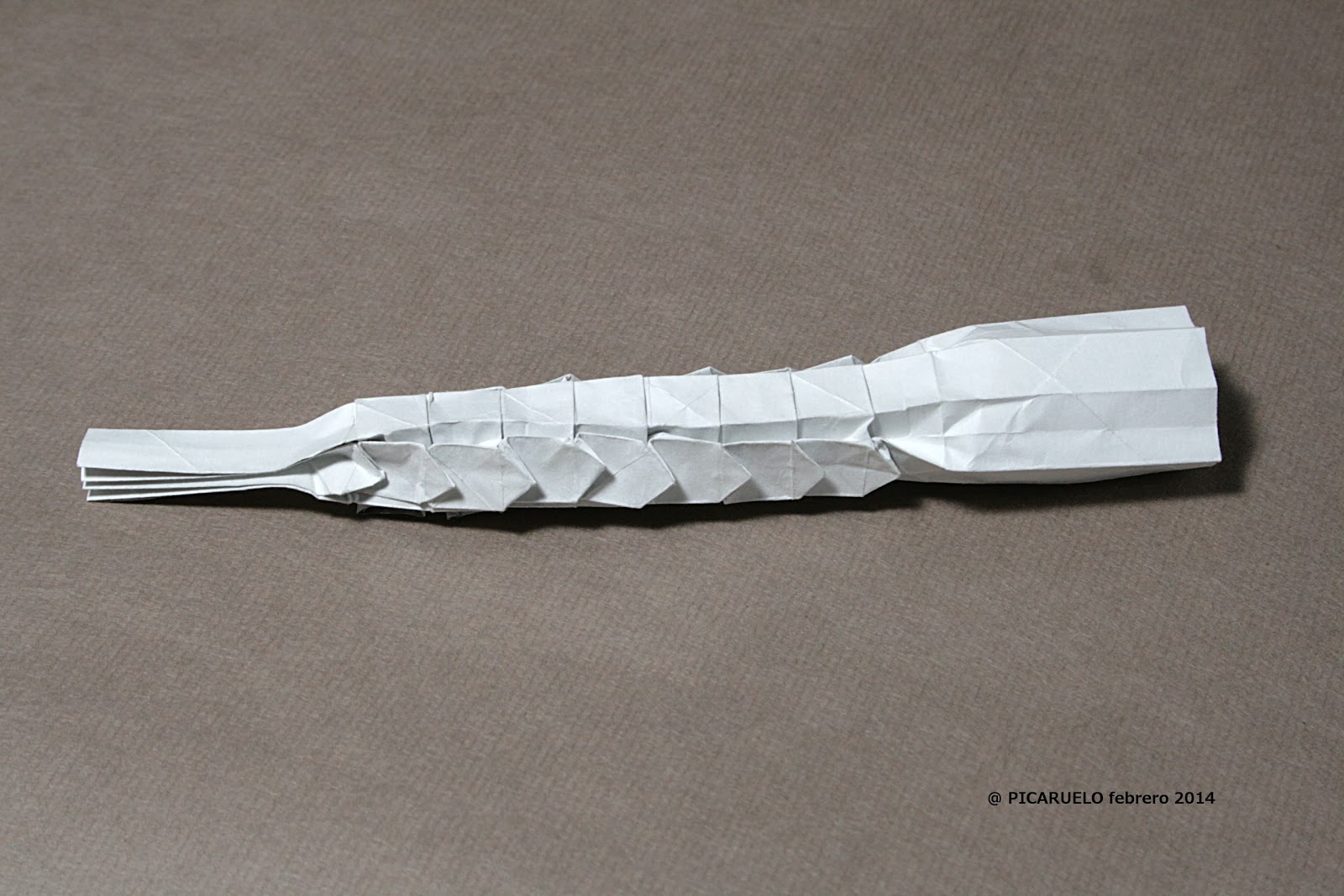Eric
Joisel’s Origami Jazz Band has become one of the most spectacular compositions
in origami. It is composed of 11 dwarves, each one with a different music
instrument, flute, drum, violin, …. Using four different CPs you can get 4
different costumes, eleven different hats and 11 different faces.
 |
The Great
Origami Jazz Band (GOJB) by Eric Joisel in Zaragoza exhibition in 2013
|
Each dwarf
is unique, one-of-a-kind, but the most important thing is not the fold but the
final modeling of the paper, the curves, the face expression and the pose of
the body with the instrument. Even Joisel said he was unable to repeat any of
his models.
Eric Joisel
passed away in 2010 without leaving clear instructions about how to make the
models, only the base of one of the dwarves and sketches of some instruments remain. The yet to finish
work of dozens of origami artists all over the world has deciphered most of the
models allowing other origami folders to give The Band a try.
A couple of months ago I decided to give this
first step and as a result I came up with this model, a dwarf playing a clarinet.

It is made
with a 60x60cm 40g Kozo square paper. It is a paper made in Japan from long and
strong plant fibers that make it very strong and flexible. Once I finished the
base I started a long process, spanning several days, in which I wet folded
every detail of the dwarf using water and methylcellulose. In some parts of the
model I used carpenter's glue to harden
the paper, especially in the legs that support most of the weight of the model.
After several cycles of wetting-modeling-drying I got the final model. The
total height is 26 cm.
I learned about this paper in the beautiful Eric
Joisel Exhibition hold in Zaragoza in 2013. It is the type of paper Joisel used
in his last creations, Barbarians, Commedia dell'Arte,… but with less weight
(40 g vs 90 g). Personally, I have tried other papers, triple silk, sandwich,
Nicolas Terry foil, etc., but none of them has allowed me to get the details I
was able to fold with Kozo. I bought my paper in a great paper shop in Madrid,
La Dominoteria
 |
| Nicolas Terry's foil paper |
 |
| Triple silk paper |
The instrument, a clarinet, is made with the same paper, in this case a 12x4.5 cm rectangle painted with brown water color for the body and bronze acrylic for the keys. The CP was designed by the Bolivian master Ricardo Montecinos mimicking Joisel’s model. His web page is well worth a visit
Before
folding the final clarinet, just 8 cm long, I made a preliminary model using
foil paper. Here is my CP interpretation:
After
folding the CP you get the collapsed base with 16 keys:
Here you
can see the details of one of the keys:
We close
the model locking the two sides of the paper together:
We model
the mouthpiece:
We
open the front part to form the bell:
And we get
the clarinet:














